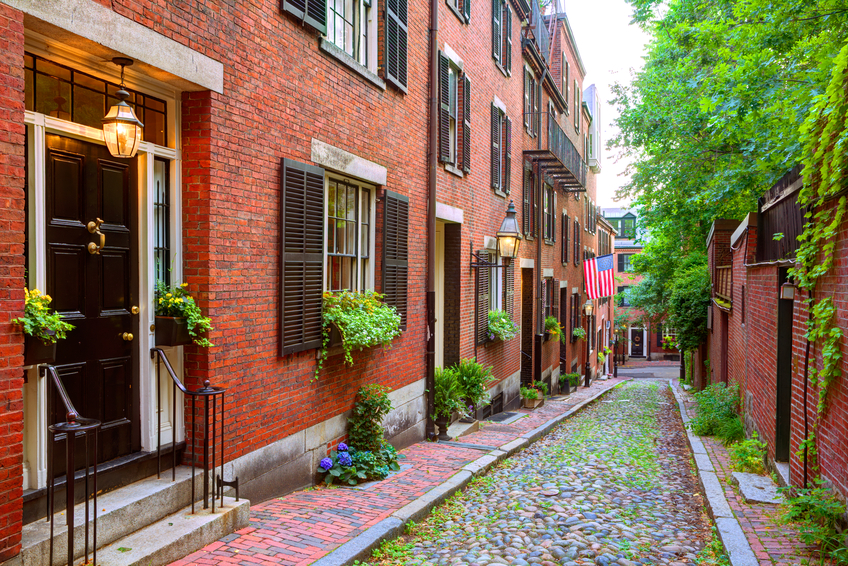 If you’ve ever planned a trip to Boston, odds are Beacon Hill made it onto your must-see list. You probably wrote it down between Fenway Park and the Freedom Trail solely based on its characteristic cobblestone streets and really nice houses. That’s fair. Been there, done that. The thing is that this high-end neighborhood is also worth its salt when it comes to historic value.
If you’ve ever planned a trip to Boston, odds are Beacon Hill made it onto your must-see list. You probably wrote it down between Fenway Park and the Freedom Trail solely based on its characteristic cobblestone streets and really nice houses. That’s fair. Been there, done that. The thing is that this high-end neighborhood is also worth its salt when it comes to historic value.
Found north of the Boston Common and the Boston Public Library, Beacon Hill has been home to an illustrious bunch. In the literature department, authors like Sylvia Plath, Robert Frost and Nathaniel Hawthorne composed some of their most famous works within these 20th-century colonial revival structures.
At the same time, many political figures and influencers like Lydia Bixby, John Hancock and John Albion Andrew also made use of the once-pastured land. Hancock owned the only house on the Hill before the Revolution (when it was still all grass). Following the Revolution, the house was demolished to expand the Massachusetts State house and the South and North Slopes developed.
The North Slope proves to be the most interesting of the two, as it grew organically as room was made for slaves, sailors and poets. Simultaneously, the North Slope flourished under the development of the Mt. Vernon Proprietors who conditioned the neighborhood for Boston’s crème de la crème. In the 19th century, Eastern and Southern European immigrants transformed the homes into tenements.
While much has happened since William Blaxton invited over his Puritans friends from Charlestown, Beacon Hill still winks at its past. Decorative touches like brass doorknockers, stylish ironwork, brick sidewalks, and the continued use of burning gaslights help preserve the 19th-century feel. Its 10,000 residents can benefit from the close-knit community fostered by the Hill’s commercial strip as well as its never-ending calendar of events.
Charles Street is packed with antiques shops, home decorating shops and plenty of options for the foodie in you. Cambridge Street specializes in restaurants and houses the neighborhood’s necessary amenities, such as two gas stations and a supermarket.
The essence of Beacon Hill is protected by severe regulations. But don’t fear: The Instagram photo op on Common and Acorn St will remain intact. The Black Heritage Trail, filled with African-American history is another major reason to visit. That, and the original Cheers bar, previously named Bull & Finch after architect Charles Bulfinch, the man responsible for this eye-candy of neighborhoods.
Source: Boston.com | Beaconhillonline.com







